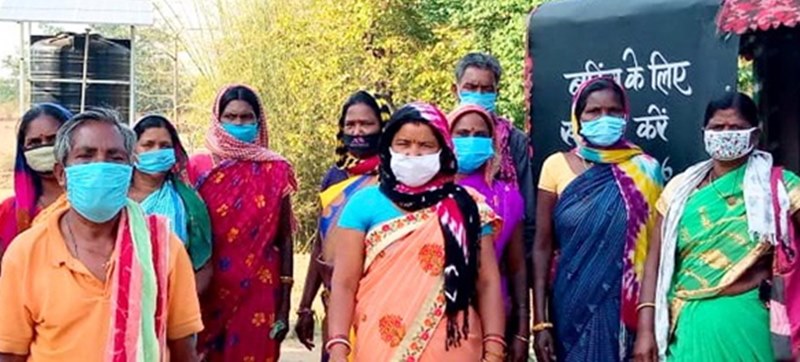All individuals and communities should receive health services they need without suffering financial hardship. This is how the global public health body World Health Organization (WHO) defines universal health coverage.
But there are several challenges on ground that hinder accessibility, availability, and affordability of health services to people, especially in rural India.
A virtual session titled ‘Reimagining Universal Health Access in Rural India’ held today, August 5, as part of Transform Rural India Foundation’s (TRIF) India Rural Colloquy, invited leading practitioners to understand key challenges and the way forward to strengthen the public health system and achieve universal health coverage in the country.
Jayantilal Satia, senior advisor, Public Health Foundation of India (PHFI), highlighted the key barriers to access universal health care in rural India. “One barrier is physical: distance, transport. Second is social: caste, language and norms. Then there is the financial barrier. Can they afford it?” he asked.
“Financial protection is also important. Around 50-70 million get pushed into poverty due to disastrous health insurance. There is this whole movement to reform healthcare, but there is not much talk of healthcare quality or social issues,” he added.
Ajay Nair, chief executive officer of Swasth, a telemedicine platform, highlighted that technology can help tackle the barriers to healthcare access that Satia mentioned.
“Over the last two years, we have seen doctors using tele-medicine. WhatsApp is the largest tele-medicine platform today. There were many apps that were made during the [COVID19] pandemic that promised a lot and did not come through,” said Nair.
“For India, we need to focus on the primary healthcare system. In a surge, there will never be enough beds and hospitals. It’ll take a decade to solve the shortage of doctors and their distribution. This is where technology can help,” he said, adding, “However, technology will not single-handedly solve these problems.”
Meanwhile, Neeraj Jain, country director at PATH India, pointed out that in order to achieve universal healthcare coverage in the country there needs to be a public-private health interface in India.
“There needs to be a public-private health interface in India. We need to insure that there is a mechanism for this. Regulation is absolutely critical because in rural India, many healthcare providers are not certified or trained for instance”
— Transforming Rural India Foundation (@TRIFoundation) August 5, 2021
– @neerajPATH #IndiaRuralColloquy
According to the Operational Guidelines for the Clinical Establishments Act, by the Ministry of Health and Family Welfare, out-of-pocket payments still account for up to 71 per cent of total health spending in India.
“We know that two-thirds of the healthcare expenditure is out of pocket. So, private sector provision cannot be ruled out. We need to ensure that there is a mechanism for this,” said Jain.
“Regulation is absolutely critical because in rural India, many healthcare providers are not certified or trained, for instance,” he added.
However, not all panelists agreed with the public-private partnership for universal health coverage. Several public health experts and activists believe the public-private partnership is against the concept of free healthcare. In fact, it is argued that the private sector has looted patients in the name of healthcare during the COVID19 pandemic. They believe the only way to provide healthcare in rural areas is to strengthen the public health infrastructure.
“One thing COVID taught me is that there is a long way to go for the government to deal with the private sector. Even in the face of an emergency, it was not that smooth,” said Satia.
However, Jain claimed that to achieve universal health coverage in five to seven years, there needs to be a combined effort. For this, “the government can play the role of regulation and ensuring quality control. The urgency is critical. We cannot wait anymore”, he stressed.
“I would want the government services to be available for anyone who can’t afford it, with good quality. However the challenge is the reality that the public system is not as trusted,” Jain added.
Meanwhile, all the panelists agreed and suggested that increasing the healthcare budget, large scale screening and diagnosing will ensure universal health coverage.
Also Read: SC notice to Centre and state govts on plea seeking affordable healthcare for all



















